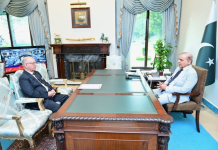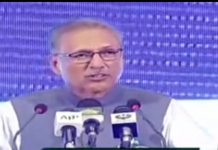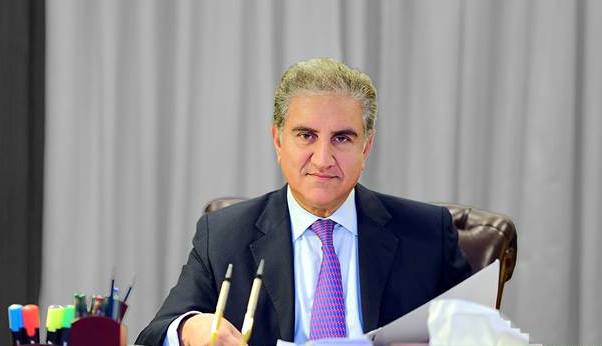Senior officials on Thursday expressed concern over Indian moves towards militarization of space, artificial intelligence and algorithms and sai
d Pakistan cannot remain o
blivious to these developments in its neighbourhood.
They were speaking at a webinar ‘Pakistan’s Quest for Peace & Strategic Stability in South Asia’ hosted by Islamabad Policy Institute (IPI) on the 23rd anniversary of the 1998 nuclear tests.
Adviser to Strategic Plans Division, Amb Zamir Akram, in his remarks, emphasized the need for updating Pakistani capabilities for maintaining credible deterrence, which he said was critical for the country’s security.
India, the adviser pointed
out, “tested anti-satellite weapon and they are also working on integrating new warfare technologies such as cyber warfare, artificial intelligence, robotics, and lethal autonomous weapons in their arsenal with US support.”
Underscoring the danger from A-SAT technology, he said, it brings a qualitative change in the threat spectrum because of the threat to the country’s nascent space infrastructure from India.
“From military perspective, satellites provide data informatio
n that relates to command and control, targeting, surveillance,” he stressed and warned that all these can be significantly downgraded if targeted by the opponent.
Pakistan, Amb Akram said, will have to respond to these developments and cannot remain complacent.
Technologically, he contended, Pakistan is not far behind India and that only a political decision for moving in this direction is required.
Director General Arms Control and Disarmament Division at the Foreign Office Mr Kamran Akhtar, while emphasizing this new challenge said “militarization of frontier technologies like A.I, cyber warfare, space technologies and quantum computing were casting their dark shades in the region.”
He too said it was imperative for Pakistan to be alive to such developments that can undermine strategic stability in South Asia.
Executive Director Strategic Vision Institute Dr. Z.I. Cheema, a well known academic specializing in strategic issues, while chairing the session said that tests by India an
d Pakistan in 1998 were a watershed moment for regional politics, security architecture and nuclear order.
The nuclear capability, he maintained, stabilized relations between India an
d Pakistan and a major achievement in this regard has been the absence of any major war between the two countries except for limited skirmishes and the 2019 airstrikes by India.
Executive Director Islamabad Policy Institute Prof Sajjad Bokhari said: “While Pakistan seeks a peaceful region with high-degree of strategic stability that avoids a costly arms race, it undoubtedly, cannot remain o
blivious to the evolving security dynamics in South Asia.”
While pursuing peace to focu
s on socio-economic development, he suggested, Pakistan needs to continuously prepare for averting any threat to its territorial integrity and national sovereignty.
Bokhari, however, regretted that Pakistan’s space program has for long remained under-resourced and neglected. “Time has come to invest in the space technologies to harness their civilian and military potential,” he said.







.jpg)





